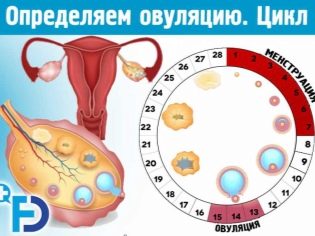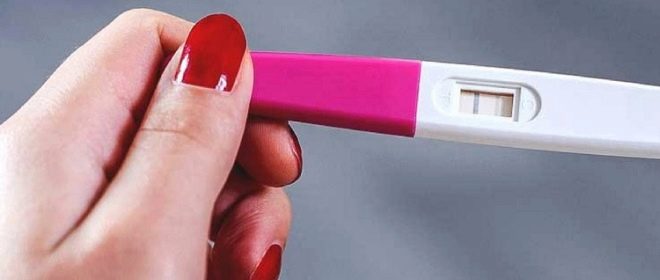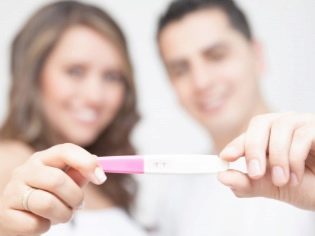Rules to help conceive a child the first time
Only those who become pregnant by chance do not think about the probability of getting pregnant from the first time. All married couples planning a child, at the very first, starting stage, ask a question - how to increase the probability of conception, because even in healthy men and women the conception of a baby may not happen.
It is impossible to calculate the probability of conception with mathematical precision, as, alas, it is impossible to fully understand all the factors that influence this sacrament. But all planners need to start with an understanding of the rules, which in one degree or another increase the chances of becoming pregnant in the shortest possible time, and sometimes the first time. We will tell about them in this article.
Rule number 1 - "Choose favorable days"
One desire to have a child in order to conceive is not enough. It is necessary to clearly understand at what periods of the female menstrual cycle conception is most likely. Male fertile by default is constantly, and female fertility is directly dependent on its own cycle.
Immediately after menstruation and during the period of menstruation, it is almost impossible to get pregnant, also in front of them. Only the middle of the menstrual cycle is ideal for conception, when a woman ovulates.
A woman can calculate the approximate day of her ovulation with the help of a special calculator or independently, armed with a calendar and a simple pencil. If the cycle for a woman on average (from the beginning of one month to the beginning of the others) lasts 28 days, ovulation falls on the 14th day. For the starting point is taken the first day of menstruation. If the cycle duration is 30 days, then the “important day” should be waited for 15 days.
Difficulties may occur in women with an irregular menstrual cycle. In this case, they should do two calculations - determine the middle of their shortest cycle and the same day of the longest cycle. The result will be a range of 13-16 days or 14-18 days, and it is on these days that ovulation should be expected.
Ovulation is the process by which a ripe egg leaves a bursting follicle. From this point on, fertilization is possible for 1-1.5 days. If the sperm does not penetrate the egg during the allotted period of time, the egg cell dies, and you have to wait for the next ovulation to try again to conceive the baby.
Male reproductive cells are more tenacious: the sperm cell can retain its morphological and other properties for 3-5 days.
Sperm cells may well "wait" for the egg to exit the follicle, already in the fallopian tube. That is why the optimal days for having sex for quick conception begin three days before the expected ovulation and continue for 1-2 days after this date.
The calendar of days favorable for conceiving a baby can be made in advance in order to better plan the rest of the preparation, including the phase of active actions. If a woman does this with an online calculator, she can not only calculate the best days of the month, but also print the calendar so that it is always at hand, without trying again and again to reproduce in your mind the dates of the days to be fertilized.
You need to learn to listen to your feelings. In the run-up to ovulation, libido changes: sexual appetite increases, the discharge becomes more viscous and abundant, in structure resembling raw egg white, the breast can become more sensitive. On the day of ovulation, many women notice short rather noticeable pains in the side on the right or on the left. So there is a gap in the follicle and the release of the egg.
If one concentrates on observing one's feelings in the middle of a cycle for several months, one can learn to determine the most favorable time for conception in oneself without error.
Many use the method of measuring basal temperature. Every morning, even before getting out of bed, women take temperature in the rectum and make up a schedule. During the period of ovulation, the temperature drops sharply, and then, if the conception was successful, it grows rapidly. This method is good, but only in combination with the observance of the other rules of successful conception.
If you draw diagrams of basal temperature there is no time, but there are no particular sensations, besides the cycle is irregular, a woman can take advantage of pharmacy rapid tests for ovulation and also visit the ultrasound room to monitor the maturation of the follicle and the release of the egg by ultrasound scanning. Ultrasonography today is the most accurate way to determine days favorable for conception.
Rule number 2 - "Have sex correctly"
Too frequent sex in the month of active planning does not increase the likelihood of quickly conceiving a child, as some people think, but only reduces it. Male sperm with frequent contacts becomes more "liquid", that is, the concentration of germ cells in the seminal fluid decreases, and the amount of ejaculate decreases, and this directly affects the probability of becoming pregnant.
The best composition of seminal fluid would be if a man will have intimate contact with a partner no more than once every 2-3 days. After menstruation, it is better to refrain from contacts for 4-5 days, and then by the time preceding ovulation, the sperm will be the most concentrated and of high quality. A couple of days for alleged ovulation sexual intercourse should be held every other day.
It is completely obvious to everyone that sexual intercourse, the purpose of which is to conceive a child, must be unprotected. This means that condoms, vaginal suppositories or pills should not be used. The act should not be interrupted, incomplete.
Also not recommended to use intimate gels and lubricants. Such means, while facilitating the act, add pleasant sensations to partners, adversely affect the state of the microflora of the female vagina, at the level of its acidity. Also, lubricants have a negative effect on sperm motility. Douching before sexual intercourse is not necessary for the same reason.
Often women are interested in whether a posture plays a role during ejaculation. For a healthy woman, without anatomical features, the position in which sexual intercourse will be held does not matter.
But women with a small bend of the uterus back may have problems with the unimpeded and rapid penetration of sperm into the uterus. They are recommended knee-elbow position in which a man completes sexual intercourse from behind.This posture provides deeper penetration - the way to be done by the sperm is significantly reduced, which increases the likelihood of conceiving a baby the first time.
Pose "rider" is not very suitable for conception, because most of the semen in the vagina flows out. The classic “missionary” position is considered to be quite favorable for conception. In the arsenal of spouses usually have their favorite poses and their combination. Do not give them too much importance. The main thing - at the time of ejaculation to provide deeper penetration of seminal fluid.
After intercourse, a woman is recommended to stand in a “birch” position for about 20 minutes when the woman's legs are above her head. You can lie down after intercourse for half an hour, just throwing your legs on the wall or headboard. Do not immediately get up and run into the shower. If the goal is conception, you need to give time to the sperm and create all the conditions for their easier movement along the genital tract, uterus and fallopian tube to the egg that is waiting for them.
You should not treat sexual intercourse as a mechanical process of conceiving a child. Try not to think about conception and not calculate the chance of getting pregnant. More quickly, according to the long-term observations of fertility specialists, couples who have sex with pleasure and love become pregnant.
An orgasm for a woman increases the likelihood of a quick conception, and love, trust and a sense of gratitude towards the partner for the pleasure delivered create an optimal psychological background for the fulfillment of the great mystery.
Rule number 3 - "Objectively assess the health of partners"
Reproductive problems may occur in both women and men. That is why doctors recommend starting planning a child with a visit to a medical office. Sometimes a healthy man and woman for a long time can not conceive a baby despite all their efforts. Talking about the possibility of conception from the first time is possible only if both partners are completely healthy, everything is in order with their reproductive health.
You can be convinced of this only in one way - by visiting a doctor. A woman is advised to consult a gynecologist, and a man - a urologist. If any deviations are revealed, it is better to postpone planning until the moment of complete recovery, so as not to experience wasted.
In the planning process, the most painful is the psychological perception of failures. If they did everything right, and the long-awaited pregnancy did not come again, an understanding of the fiasco is hard given not only to women, but also to men. In order not to waste your nerves, it is better to start planning your son or daughter, being firmly convinced that everything is in order with health.
It is also important to evaluate well-being during the days favorable for conception. If a woman has an ovulation plan, while her husband has a viral infection and a high fever has risen, conception may not take place, even if sexual intercourse is successful.
Spermatozoa are very sensitive to many factors. Illness, fatigue, stress in a man, any discomfort can significantly reduce his ability to fertilize.
Rule number 4 - "Prepare for conception in advance"
The chances of getting pregnant the first time will be higher if partners start preparing for a fateful cycle in advance. In about three months, a man should start taking vitamins. There are special vitamin complexes enriched with folic acid, zinc and selenium. These substances are very important for the composition of sperm.
Spermatogenesis (the process of sperm production and maturation) lasts about 3 months. That is how long it takes the composition of sperm "updated." It will be good if all these three months a man will not only take vitamins developed for men, but also dietary supplements to improve the quality of sperm.
For three months before the alleged conception, a man should refrain from working with painting materials, paints and varnishes, acids, salts of heavy metals, radioactive materials and substances.
A man should not frequent the bath and sauna, include electric heated seats in his car, as the temperature effect on the testicles adversely affects the composition of sperm. You should also refrain from wearing tight underwear and tight pants.
A woman on the eve of conception for a couple of months should start taking folic acid. Of course, it does not increase the likelihood of getting pregnant, but this substance accumulates in the body. If conception takes place, folic acid will dozens of times reduce the likelihood of congenital deformities and malformations of the baby.
Additionally, you can take a multivitamin, the composition of which was created specifically for expectant mothers and plan to conceive.
Both spouses should refrain from drinking alcohol for at least three months before conception. The process of conception in a state of intoxication does not have a big impact on the female egg, but alcohol has a detrimental effect on the composition of the male sperm. Therefore, after a couple of glasses of wine, the probability of getting pregnant is lower than without them.
The ban on alcohol in this situation is in the nature of prohibition. No matter how hard men try to justify “just one!” A beer mug after the working day, it definitely does not go to the benefit of reproductive health.
A woman who smokes is more difficult to get pregnant than a non-smoker. A man who is seriously thinking about conceiving a healthy child and becoming a dad should also reduce the amount of nicotine consumed, and it is better to completely abandon this pernicious habit, at least for the planning period of conceiving a baby. Preparation for conception also includes the rejection of drugs or psychotropic drugs.
If one of the spouses took antibiotics, hormones with therapeutic goals, after the end of treatment, you need to wait at least 1-2 months and only then begin planning. Any passion for medicines, whether it is febrifugal or headache pills, is not the best companion for planning couples. By the month in which conception is planned, it is better to abandon any medicines, except vitamins.
Correction of family nutrition will help prepare for conception. In the diet of spouses who dream of becoming a mom and dad of a healthy child, be sure to have meat and fish, eggs, dairy products, a large amount of fresh greens, vegetables and fruits.
Vegetarians find it harder to get pregnant precisely because of a lack of animal protein in the body, especially in men. A woman a month before conception should abandon coffee and strong tea, this will increase the chances of conceiving quickly. A man should not eat "masterpieces" of fast food - a large number of preservatives in them cause morphological deformities of sperm, which reduces fertility and increases the likelihood of conceiving a child with chromosomal abnormalities.
Rule number 5 - "Put in order your thoughts"
Very often, women who are trying to get pregnant with all the mental forces are faced with the opposite result. After long attempts that failed, they cease to “get hung up”, despair and suddenly become pregnant. The story knows many situations when a desperate couple resigns themselves to sterility and takes a foster baby from an orphanage, and after a while becomes pregnant with their own. In such cases, the people say that the couple "God rewarded."
From the point of view of psychosomatic processes, the following happens: while a woman persistently plans, experiences unsuccessful attempts, she is in a constant state of stress. All her thoughts are only about whether conception happened this month or not.
They can not be distracted by anything else, they are painfully experiencing the onset of the next menstruation, and on the last day of the menstruation they are already planning a new cycle. Stress hormones, which are produced in such women, interfere with the normal production of female sex hormones, in particular, reduce the concentration of progesterone.
It is progesterone that is necessary for normal conception and implantation of a fertilized egg in the uterine cavity. When a woman calms down, stops planning and simply lives and enjoys, the production of progesterone returns to normal, pregnancy begins.
That is why before planning it is important to understand the main thing - stress prevents the onset of pregnancy. Set priorities for yourself, find a place in your life for interesting work, informative and pleasant communication with friends, do not forget about your hobby, make sure that you simply had no time to sit and worry about the fact that conception may not have taken place. Only a calm and measured attitude to planning can guarantee a quick onset of pregnancy.
Do not forget that the feeling of love for your partner comes to the fore. When it is, pregnancy occurs much faster than among couples who choose financial well-being, social security, fear of loneliness, or others who have little to do with true love as a reason for living together.
What can prevent quick conception?
Even if the couple is doing everything right, no one guarantees her a quick conception. To prevent fertilization can a lot of factors. So, bewilderment can be caused by the fact that sexual intercourse, held on the day of ovulation, does not lead to conception. This is possible if the sperm could not get to the egg, as well as if the egg was not at all.
Such cycles, devoid of ovulation, from time to time occur in every woman, even if she is completely healthy. If a woman has problems with a gynecological history, there is ovarian dysfunction, hormonal disruptions, then the likelihood of anovulatory cycle increases. Sometimes, despite all the calculations, ovulation occurs later than expected. Late ovulation is typical of about 5-7% of women at least a couple of times a year, and therefore doctors recommend having sexual intercourse to continue after the day of supposed ovulation, once every 2-3 days.
Overweight women - one of the most common causes of lack of pregnancy. The more extra pounds, the harder it is to conceive a baby. Hormonal background in obesity, even light, undergoes great changes.
If a woman decided to become a mother, sometimes it is enough for her to lose only 5% of her body weight, so that the attempt could be crowned with success.
It is much harder for women with underweight. Too thin girls must consult a doctor and get the missing kilos so that there is a chance for conception. The process of gaining pounds in pathological thinness takes a lot of time, almost always it is accompanied by the need for hormonal correction.
Sometimes the inability to conceive a child is due to genetic incompatibility of partners. This does not happen too often, but you cannot disregard such a reason. If a man and a woman are completely healthy, and during the year they are not pregnant, you should turn to genetics, who will prescribe all the necessary tests to determine the compatibility of partners. If their genomes are very similar, then conception is impossible.
Often conception occurs, but the woman does not even know about it, because in time or with a small delay of several days she comes next monthly. This is the so-called biochemical pregnancy. Fertilization takes place with it, but the fetal egg cannot be fixed in the uterus.
The second option is the rejection of a fixed fetal egg within a few days after implantation.The true causes of this phenomenon are not fully known to science. Most often, according to doctors, the embryo does not survive, which has gross chromosomal abnormalities that are incompatible with further growth and development. Also, the reason may lie in the insufficient amount of progesterone produced in the woman's body, in autoimmune processes, when the germ of a woman rejects the germ.
A woman can guess biochemical pregnancy by a delay of several days, by a heterogeneous, with clots, the consistency of menstrual blood, as well as by a weakly positive reaction of the pregnancy test.
Some, especially those who want to become future mothers sooner, start making them almost a couple of days after ovulation in the hope of seeing at least the “ghosts” of the second strip. Usually by the end of the first lunar month (by the first day of delay) they may have a weak second bar, but their periods will still begin, darkening all the joy.
Is it possible to "order" the sex of the child?
All planning women have heard that the sex of the child can be “programmed”. So, the popular rumor recommends to have sexual intercourse before ovulation, if you want a girl to be born. If you need an heir, then conception should be postponed until the day of ovulation on the first day after it. This opinion is erroneous and this is why:
- Gender child sets sperm. If the sperm fertilizes the ovum with set XX, a daughter is born, if the sormmatozoid with the XY set manages first, one should expect a boy to be born.
- It is believed that XY - faster sperm, and the twentieth - more survivable. That is why it is advised in advance to “stock up” with the sex cells of the twentieth, if you want a daughter. In fact, the life expectancy of sperm with different sex chromosomes is exactly the same as the ability to move, speed and other parameters.
It is impossible to conceive a boy or a girl, one baby or a triple "to order". The only way to "choose" a child of a particular gender is IVF.
Chance to get pregnant - in numbers
Reproductive experts have calculated that the probability of getting pregnant from the first time after proper preparation in a perfectly healthy young couple is only 11%. This is the maximum value, which can not be increased by compliance with the rules or popular methods. If a couple has aggravating factors, for example, age, bad habits, chronic diseases, then the probability decreases proportionally.
The probability of conception from the first time for a woman aged 20-23 years approaches 11%, and for a 30-year-old woman she is already reduced to 7%, for a woman over 36 years old the chances of getting pregnant the first time if all the above recommendations are observed are only 4% . However, do not despair. According to statistics, 60% of couples in reproductive age become pregnant during the first six months since the start of planning. Every third couple becomes pregnant for 12 menstrual cycles, that is, within a year.
It is necessary to treat an important event for a family philosophically, but it is necessary to prepare for it. Couples who go to conceive with a conscious mutual desire to raise a baby, by experience, are more likely to become successful parents who can not only conceive and give birth, but also raise and raise a decent person.
In a quarter of cases, when an ovum meets a sperm cell, fertilization does not occur for reasons that are beyond the scope of the medical competence. They are inexplicable. For women whose age has "crossed" over 35 years, the probability of conceiving not one, but two or three babies at once increases by 20%.
In 40% of cases of marital infertility, men are “guilty,” or more precisely, deviations in the state of male reproductive health.
Experts recommend visiting a doctor with complaints of possible infertility after a year of unsuccessful independent attempts. For couples in whom a woman is more than 35 years old, this period of time is reduced to six months.
How to conceive a child from the first time, see the following video.








































